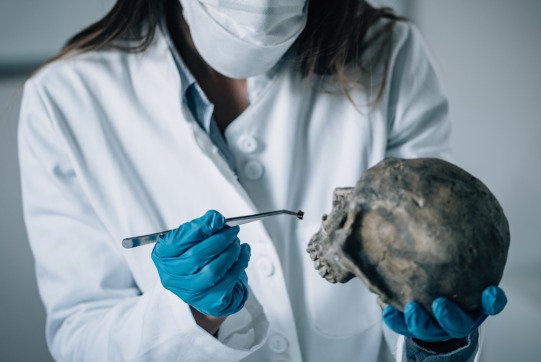Forensic Medicine Introduction
4 years ago 3135

| First medico-legal autopsy done by Bartolomeo De Varignana: Italy (1302) |
| First judicial autopsy: Paris (1562) The first book on forensic medicine was written by Fortunado Fedele (Italy):1602 The first medical autopsy was compulsory: 1800 (1846) |
| Forensic= forums of or used in the court of law. The term “Forensic” comes from the place “Forum”. The Roman marketplace where the lawyer did their business in ancient times. |
Some examples are: applying medical knowledge in deciding cases of injuries, murder, suicide, accidents, sexual offenses, poisoning, etc.
In short, it deals with medical aspects of the law.
Forensic medicine is also known as:
| Application of medical knowledge in legal matters both civil and criminal cases. |
| Examination of various trauma, injury and keeping medico-legal knowledge regarding the cause and nature of injury and death. |
| Helps in the judicial investigation of sudden, unexpected, suspicious, criminal death. |
| Identification of poison, person by different examination using medical knowledge and helps in crime investigation. |
| Doctors treat patients irrespective of origin. So, they get some victims of criminal acts to treat. Gynecology doctors treat criminal abortion, surgeons treat criminal wounds and physicians treat chemical poisoning. In all cases, the doctors will be required to appear as expert witnesses in the court of law. All the doctors are chief sources of evidence upon which legal decisions are made. Their effective use in the administration of justice is absolutely necessary for a peaceful and orderly society. Forensic medicine prepares the doctors to face such cases with efficacy. |
| A doctor of any specialty may be asked at any time to give his medico-legal opinion in case of death. Forensic medicine helps the doctor in such cases. |
| Fair knowledge is also needed to safeguard a doctor himself from criminal cases. |
| A doctor comes to know his own code of conduct that is what to do and what not through forensic medicine. |
In short, it deals with legal aspects of the practice of medicine.
Difference between forensic medicine and medical jurisprudence (Lecture)
| Forensic medicine | Medical jurisprudence |
| It deals with the medical aspects of the law. | It deals with the legal aspects of medical practice. |
| It brings the medical man into contact with the court of law. | It brings the relationship between doctor and patient and also doctor and society. |
| It deals with the application of medical and paramedical scientific knowledge in the administration of justice. | It deals with the legal responsibilities of the doctor with particular references to those arising from: Doctor-patient relationship Doctor-doctor relationship Doctor-student relationship Doctor-state relationship Medical negligence case |
| Have some sub-divisions. |
No such subdivision |
| It can be applied to all. |
It can be applied only to the doctor.
|
| Branches | Definition |
| Forensic Ballistics | It deals with firearms ammunition and the problems arising from their use. |
| Forensic criminology | It deals with crimes and criminals. |
| Forensic dactylography | It deals with a fingerprint system for the identification of the individual. |
| Forensic nursing | It deals with preparing a dead body. |
| Forensic osteology | It deals with the study of bones. |
| Forensic odontology | It deals with the medico-legal aspects of the study of teeth. |
| Forensic obstetrics | It deals with the medico-legal aspects of normal and abnormal deliveries. |
| Forensic pathology | It deals with medical and pathological principles in determining the causes and manner of death. |
| Forensic psychiatry | It deals with the application of psychiatry for legal purposes. |
| Forensic radiology | It deals with x-ray examination for determining age in various criminal cases, detection of fetus, missile, diagnosis of head injury, lives of birth, etc. |
| Forensic serology | It deals with the examination of blood and seminal staining to detect crime. |
| Forensic thanatology | It deals with the medical and legal aspects of death. |
| Forensic toxicology | It deals with the comprehensive study of poison. |
A doctor should behave with his colleagues as he would have them behave with himself.
A doctor should not criticize or denigrate the professional ability of another doctor while dealing with a patient
Glossary
| Conventional: | Normal, ordinary, following the accepted way (which follows accepted standard of behavior) |
| Courtesy: | Polite |
Comments (0)